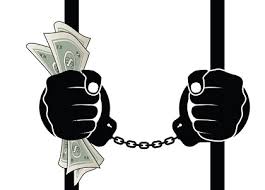Vancouver Housing Markets Are Susceptible To Money Laundering
Recently, The Globe and Mail learned that most of Vancouver real estate firms are failing to comply with federal anti-money laundering laws that require them to identify their clients and the sources of their incomes. The Financial Transactions and Reports Analysis Centre (FinTRAC) notes that it found significant deficiencies with about 60 British Columbia brokerages in the past year. It decided to step up scrutiny over allegations that money especially from China is being laundered through Vancouver real estate.

Spokesperson Darren Gibb says “There were concerns being raised that those in the real estate sector were not fulfilling the obligations under the Act, as well as other concerns expressed about the movement of money. The real estate sector is highly vulnerable to money laundering.”
Federal examiners visited 80 realty offices in Vancouver for an audit of their paperwork and procedures. In 55 instances, they found practices lacking especially involving brokerage firms and some individual agents. For some undisclosed additional cases, the violations were grave enough to warrant fines.
“The very significant deficiencies will lead to additional enforcement action and possibly penalties,” said Mr. Gibb. “We found a number of obligations that were not being respected.”
Between 2012 and 2015, the agency received seven reports from the real estate in Vancouver of some brokerage firms failing to disclose suspicious or large cash transactions. FinTRAC discovered that some real estate agents failed to get proper details of their clients such as passports, drivers’ licences, etc. Thus efforts to verify sources of money were found to be insufficient or basically non-existent. The 80 offices put under investigation were not part of a witch-hunt or just any random selection. According to FinTRAC, brokerage firms and agents are targeted based on the number of complaints and concerns they have about the former, especially those doing a large number of transactions.
The discoveries arose after a Globe investigation into speculation and flipping led the B.C government to put the real estate industry in the spotlight. A team of advisers are currently looking at any practice ’’that could pose a risk to consumers or that fails to meet the standards expected by the public.”
The Canadian Real Estate Association (CREA), which is responsible for industry training on anti-money laundering compliance, however, puts the blame on the federal agency. It calls FinTRAC training grossly insufficient while the industry utilises two members of staff as well as outside firms to create more awareness among members.
“A huge percentage of our members help individuals sell, then buy a home within days or weeks,” Randall McCauley, CREA’s vice-president of government and public relations said. “Why is the second transaction riskier? Why is there more work for our members?”
FinTRAC states by law that the real estate sector have to comply with anti-money laundering regulations.
Keith Roy of Re/Max Select says managing brokers who should make agents comply with federal laws are supervising hundreds of them in different locations in an overheated market. There are often so many contracts and the broker doesn’t have the time to examine each deal. He reiterates that it’s quite easy to become a broker in British Columba and compliance would obviously be an issue and so, to increase public protection, brokers should have at least a 10-week course before obtaining their licences.
Money laundering expert, Christine Duhaime applauds the efforts of the federal agency for their increasing enforcement but wishes that the spotlight on agents be increased to a full hundred not just 80.
Adding that she talks to many uninformed agents, she says “Most don’t even understand the laws or what they are supposed to do,” she said. “Brokerage firms have to hire consultants and experts, and then you have to hire somebody to be a compliance officer – or appoint someone – so it’s really expensive.”
FinTRAC acknowledges that most information don’t get disseminated immediately to the police except the crime is suspected over and above questionable transactions; for instance, money derived from illegal sale of drugs in Canada. Mr Gibb insists that those real estate buyers would buckle up and think twice about obtaining illegal money from overseas in Canada especially if they know they are being identified and reported to the federal government.
“Money laundering is a clandestine activity,” said Mr. Gibb. “What we are trying to do is shed a light on transactions to ensure that Canadians and the Canadian financial system are protected.”’
Mr Roy believes that non-compliant firms would only make real changes when they are fined. He adds, “If I own a brokerage and I get a fine and it is $20,000 – that is a salary for a part-time assistant managing broker. So, I will just hire one to avoid getting fined.”





